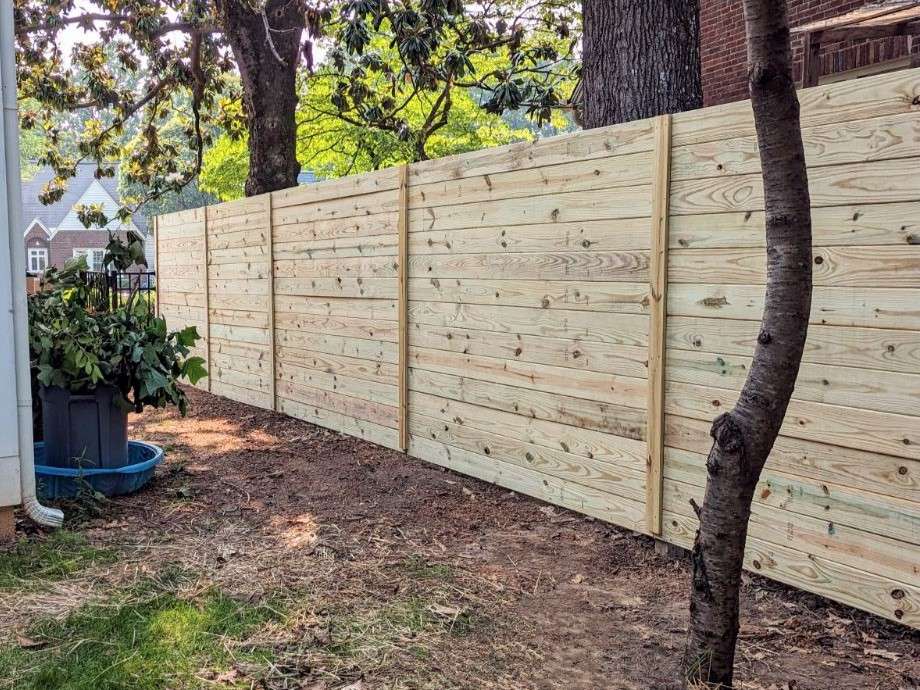All Categories
Featured

When it comes to selecting the finest secure fencing material for resilience, functioned iron stands out as one of the most trusted and resilient choices available. Let's take a better look at wrought iron secure fencing and how it piles up against choices like wood, plastic, and light weight aluminum.
Toughness and Longevity of Wrought Iron Fence. Wrought iron is a solid, heavy-duty material that's made to last for decades, otherwise longer. Unlike several other fence choices, wrought iron can endure severe environmental conditions, including severe heat, heavy rainfall, and also solid winds. This makes it an outstanding choice for residential or commercial properties found in areas with unpredictable climate. Because it is a metal, wrought iron is not prone to the damage that wood fences frequently experience, such as decomposing, warping, or insect invasions.
Toughness: Wrought iron fences are unbelievably tough and can endure impacts and other types of physical anxiety that could harm various other materials. When appropriately maintained, they can last for half a century or more, making them an investment that will certainly supply lasting worth.
Wrought Iron vs. Wood Secure fencing. Wood fencings, while conventional and aesthetically pleasing, commonly require even more upkeep and have a shorter life-span compared to functioned iron. Timber is susceptible to rot, termites, and weathering gradually, all of which can jeopardize its structural stability. In enhancement, timber fences might require to be replaced or repaired every 10 to 20 years, depending upon the environment and the sort of wood used.
Upkeep: While timber fences require to be regularly treated with spots, sealants, or paints to keep their appearance and long life, functioned iron fencings normally call for a lot less upkeep. They might need periodic cleansing or painting to avoid rust, particularly in damp or seaside locations, however they will not struggle with the exact same kinds of deterioration as timber.
Longevity: While a well-maintained wooden fence could last 20 to three decades, wrought iron can surpass that life expectancy by a number of years, making it a much more long lasting option over time.
Wrought Iron vs. Plastic Fencing. Vinyl secure fencing has become a preferred choice to timber due to its low maintenance and resistance to the components. Unlike timber, plastic does not rot or warp, and it does not require to be repainted or dealt with.
Longevity: While vinyl is resistant and rather long lasting to rot and fading, it still can not match the lasting strength and toughness of functioned iron. A plastic fence could last around 20 to 30 years, depending on environmental elements, however it lacks the structural honesty that functioned iron offers.
Upkeep: Plastic calls for marginal maintenance contrasted to wood, yet it can still fade in time, specifically in areas with intense sun direct exposure. Wrought iron may require occasional rust prevention therapies yet typically calls for less treatments than vinyl.
Wrought Iron vs. Light Weight Aluminum Fence. Light weight aluminum is another steel choice to functioned iron, and while it shares several of the longevity traits of wrought iron, it is normally much less solid and strong. Light weight aluminum is a lot more light-weight and immune to rust and corrosion, making it a preferred choice for low-maintenance fence. Nevertheless, it's not as strong as functioned iron and might be a lot more susceptible to bending or denting under stress.

Resilience: Wrought iron is considerably stronger and extra sturdy than light weight aluminum. While aluminum fencings can last for several decades, they may not hold up too in high-traffic or high-impact areas. On the other hand, wrought iron is much extra resistant to physical damages and can much better endure stress and pressure.
Maintenance: Both functioned iron and light weight aluminum fencings call for some maintenance, mostly to avoid rust. Light weight aluminum is less most likely to corrosion than wrought iron, making it an extra low-maintenance alternative in areas with high moisture or seaside salt direct exposure.
Last Thoughts: Wrought Iron's Resilience Advantage. Wrought iron sticks out as one of one of the most durable fence products offered, surpassing timber, plastic, and aluminum in terms of stamina, long life, and general performance. While it does require occasional upkeep, especially to avoid corrosion, its capacity to withstand severe weather, physical tension, and the examination of time makes it a superb investment for services and home owners searching for a resilient, protected fence solution.
For those that prioritize stamina and long life most of all else, wrought iron is an irresistible selection. Whether you're safeguarding a home, enhancing the appearance of your yard, or providing safety for a business website, wrought iron fencing will certainly provide decades of sturdiness and aesthetic appeal that few other materials can match.
Latest Posts
Reputable Expenses Door Solutions for Houses and Organizations
Published May 23, 25
1 min read
Discover Oil Changes & More: Complete Auto Care Solutions from Montclare Auto Repair
Published May 23, 25
1 min read
How Regular Auto Maintenance at Montclare Auto Repair Reduces Costs
Published May 23, 25
1 min read
More
Latest Posts
Reputable Expenses Door Solutions for Houses and Organizations
Published May 23, 25
1 min read
Discover Oil Changes & More: Complete Auto Care Solutions from Montclare Auto Repair
Published May 23, 25
1 min read
How Regular Auto Maintenance at Montclare Auto Repair Reduces Costs
Published May 23, 25
1 min read